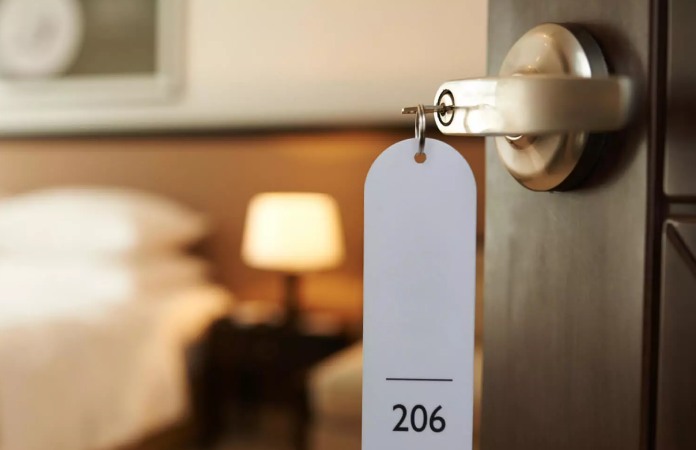In today’s tech-dominated era, marked by fierce competition, the hospitality industry must be resilient. Businesses must successfully navigate rapidly changing trends and overcome challenges. Without a doubt, marketing for increased occupancy is crucial for hotels.
Thus, establishing a robust online presence is no longer optional but a necessity. This article outlines effective online strategies that can significantly boost room sales, focusing on practical, result-driven methods. Let’s fire away.
1. Optimizing the Hotel Website for User Experience and SEO
A hotel’s website is the cornerstone of its online marketing efforts. The goal is to create a user-friendly, visually appealing, and informative website. Ensure the site is mobile-responsive, as a significant portion of bookings are made on mobile devices.
Booking Engine Integration
Ensure guests can make a reservation with minimal clicks. Also make sure to present clear descriptions and photos. If you’re selling family-friendly rooms, one of the most reliable online strategies is incorporating high-quality pictures of dedicated play areas complete with engaging toys, stacking puzzles, and children’s books.
On top of these, consider offering flexible payment options and allowing customers to personalize their stays (e.g., adding meal plans or special requests). All these contribute to a streamlined and satisfying booking process.
SEO Optimization
Implement Search Engine Optimization (SEO) to increase visibility. This includes using relevant keywords, optimizing meta descriptions, and creating quality content.
High-Quality Visual Content
Use professional photos and videos to showcase rooms, amenities, and unique selling points.
Live Chat Feature
Offer real-time assistance to potential customers through live chat options.
2. Leveraging the Power of Social Media
Utilizing social media platforms is a potent way to deepen engagement with potential customers and drive traffic to your website.
Targeted Advertising
Use platforms like Facebook and Instagram for targeted ads. These platforms offer sophisticated targeting options based on demographics, interests, and behaviors.
Content Strategy
Craft a content strategy that connects strongly with your audience. Share behind-the-scenes content, guest testimonials, and special offers.
Influencer Partnerships
Collaborate closely with travel bloggers and influencers to reach a broader audience.
3. Managing Online Reputation
Online reviews significantly impact booking decisions. Actively manage your hotel’s reputation on platforms like TripAdvisor, Google My Business, and Yelp.
Encourage Reviews
Politely ask satisfied guests to leave reviews.
Respond to Reviews
Respond professionally and strategically—instead of reacting—to both positive and negative reviews. This shows that you value guest feedback, which you can actually tap into to make crucial improvements to your business processes.
Monitor and Analyze Feedback
Regularly monitor reviews and use the feedback for continuous improvement.
4. Email Marketing Campaigns
Email marketing remains an effective tool for direct communication with potential and returning guests.
Personalization
Segment your email list and send tailor-fit messages. This could include special offers for returning guests or location-specific information for new inquiries.
Regular Newsletters
Send out regular newsletters highlighting upcoming events, special packages, or renovations.
Automated Booking Reminders
Implement automated emails for booking confirmations, pre-arrival information, and post-stay thank you messages.
5. Utilizing Online Travel Agencies (OTAs)
While direct bookings are ideal, OTAs like Booking.com and Expedia can expand your reach.
Strategic Use of OTAs
Use OTAs to tap into their vast audience. However, ensure your direct booking offers are equally or more attractive.
Rate Parity
Maintain rate parity across different platforms to build trust with customers.
OTA Optimization
Optimize your listings with quality photos, detailed descriptions, and updated information.
6. Pay-Per-Click (PPC) Advertising
Invest in PPC campaigns on Google Ads and Bing Ads to target potential guests actively searching for accommodations.
Keyword Research
Conduct rigorous keyword research to target relevant search queries.
Ad Copy
Create compelling ad copy with clear call-to-actions.
Landing Page Optimization
Direct ads to specific landing pages tailored to the campaign.
7. Implementing a Loyalty Program
Loyalty programs can incentivize repeat bookings and turn guests into brand ambassadors.
Reward Systems
Offer points, discounts, or special perks to repeat guests.
Exclusive Offers
Provide exclusive offers to loyalty program members.
Personalized Communication
Use the data from the loyalty program to send personalized offers and information based on guest preferences.
8. Analytics and Continuous Improvement
Regularly analyze data from your website, social media, and booking platforms to understand customer behavior and preferences.
Use Analytics Tools
Utilize tools like Ahrefs and Google Analytics to track website traffic, conversion rates, and customer behavior.
A/B Testing
Run A/B testing on your site and email campaigns to determine what works best.
Feedback Loop
Create a feedback loop where data and customer feedback inform your marketing strategies.
Final Thoughts
The online landscape for selling hotel rooms is constantly evolving, requiring hoteliers to stay informed and adaptable. By applying these strategies, you can ramp up your online presence, attract more guests, and ultimately increase sales. Bear in mind that much boils down to your unique value proposition and how best to communicate that to your potential guests. With technological savvy and customer-centric approaches, your hotel can rise from the rest of the pack in the crowded digital marketplace.



























































